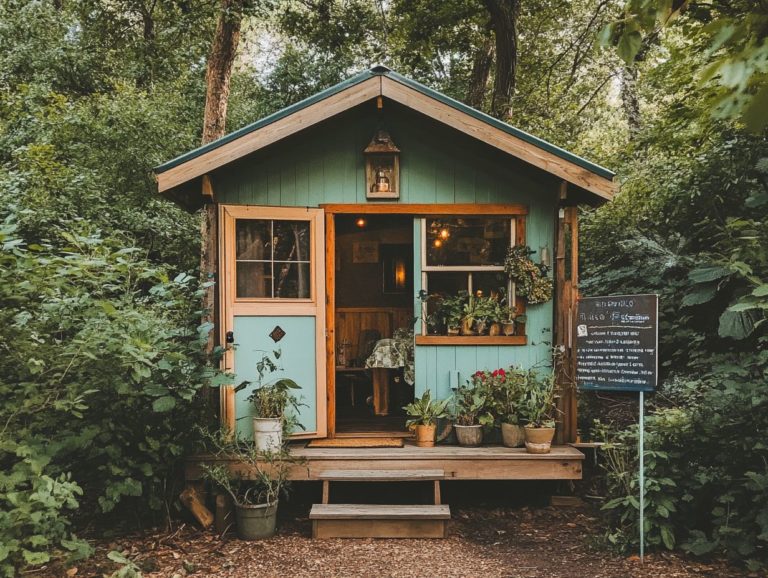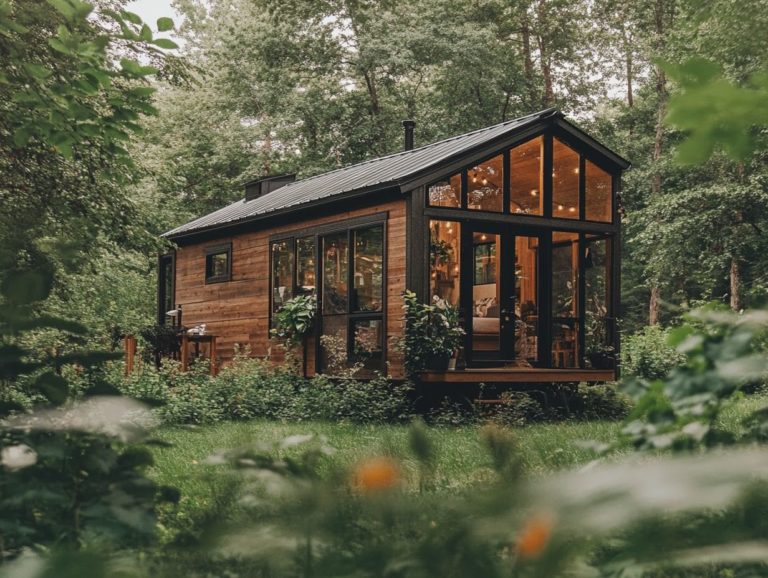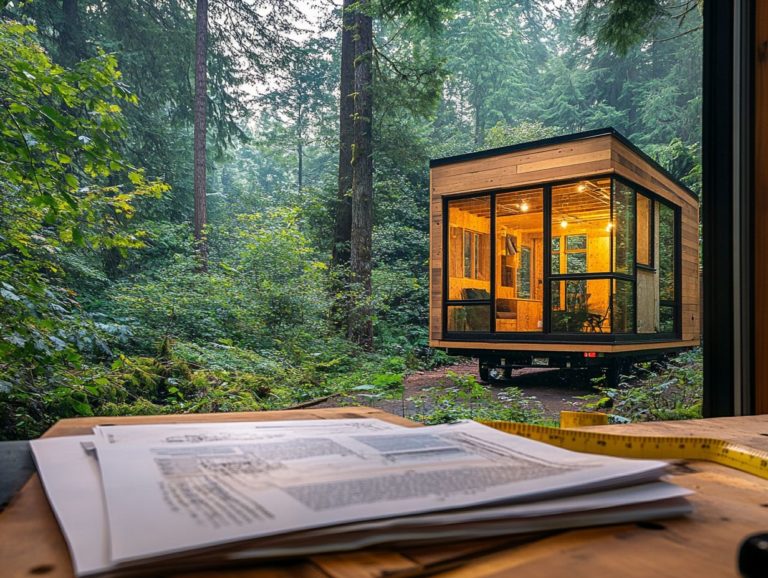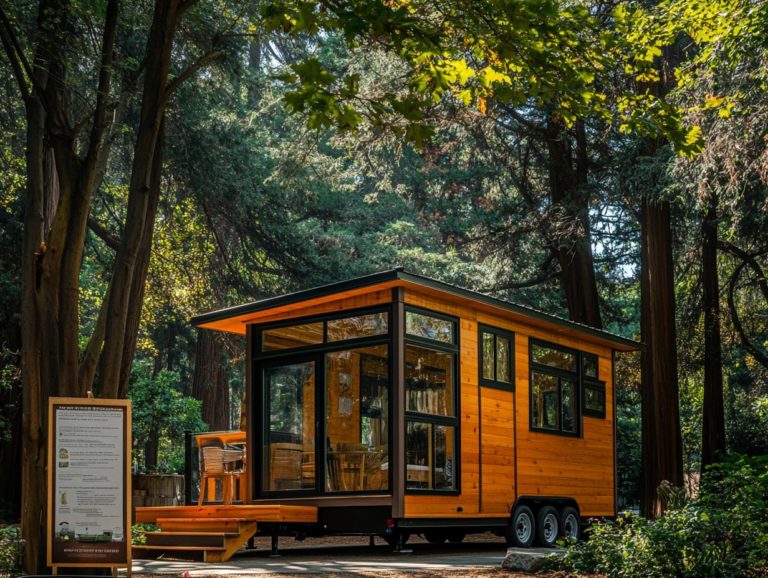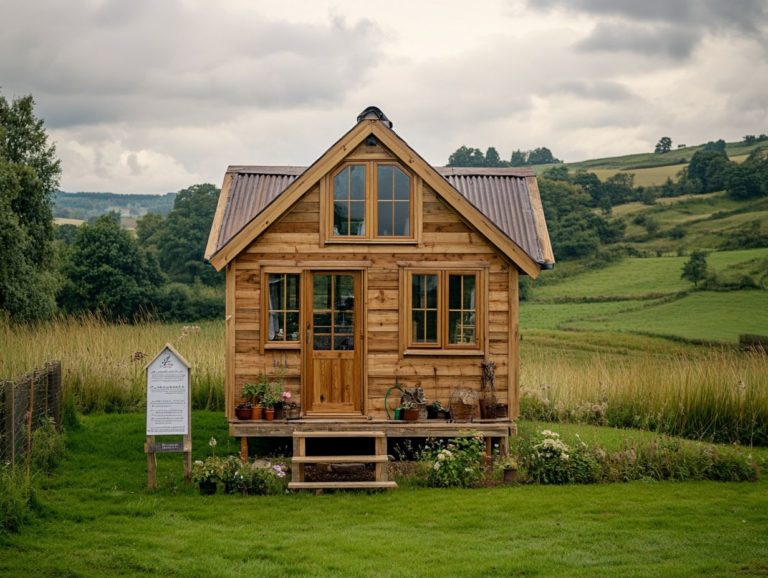Tiny House Codes: Understanding Your Rights
Navigating the world of tiny houses is an exhilarating journey, yet it comes with its fair share of complexities, especially concerning codes and regulations.
For anyone considering this minimalist lifestyle, grasping tiny house codes is absolutely crucial. This article will elucidate key elements, from zoning laws and building codes to the permitting process and legal considerations.
By the time you finish reading, you’ll possess the knowledge necessary to confidently pursue your tiny house dream while ensuring adherence to local regulations.
Contents [hide]
- Key Takeaways:
- What are Tiny House Codes?
- Understanding Zoning Laws
- Building Codes for Tiny Houses
- Permits and Inspections
- Legal Considerations for Tiny House Dwellers
- Resources for Tiny House Codes and Regulations
- Frequently Asked Questions
- What are tiny house codes and why do they matter?
- Do I have to follow codes if I live in a tiny house?
- Are there different codes for different types of tiny houses?
- Can I get in trouble for not following tiny house codes?
- Who is responsible for enforcing tiny house codes?
- Do tiny house codes limit my rights as a homeowner?
Key Takeaways:
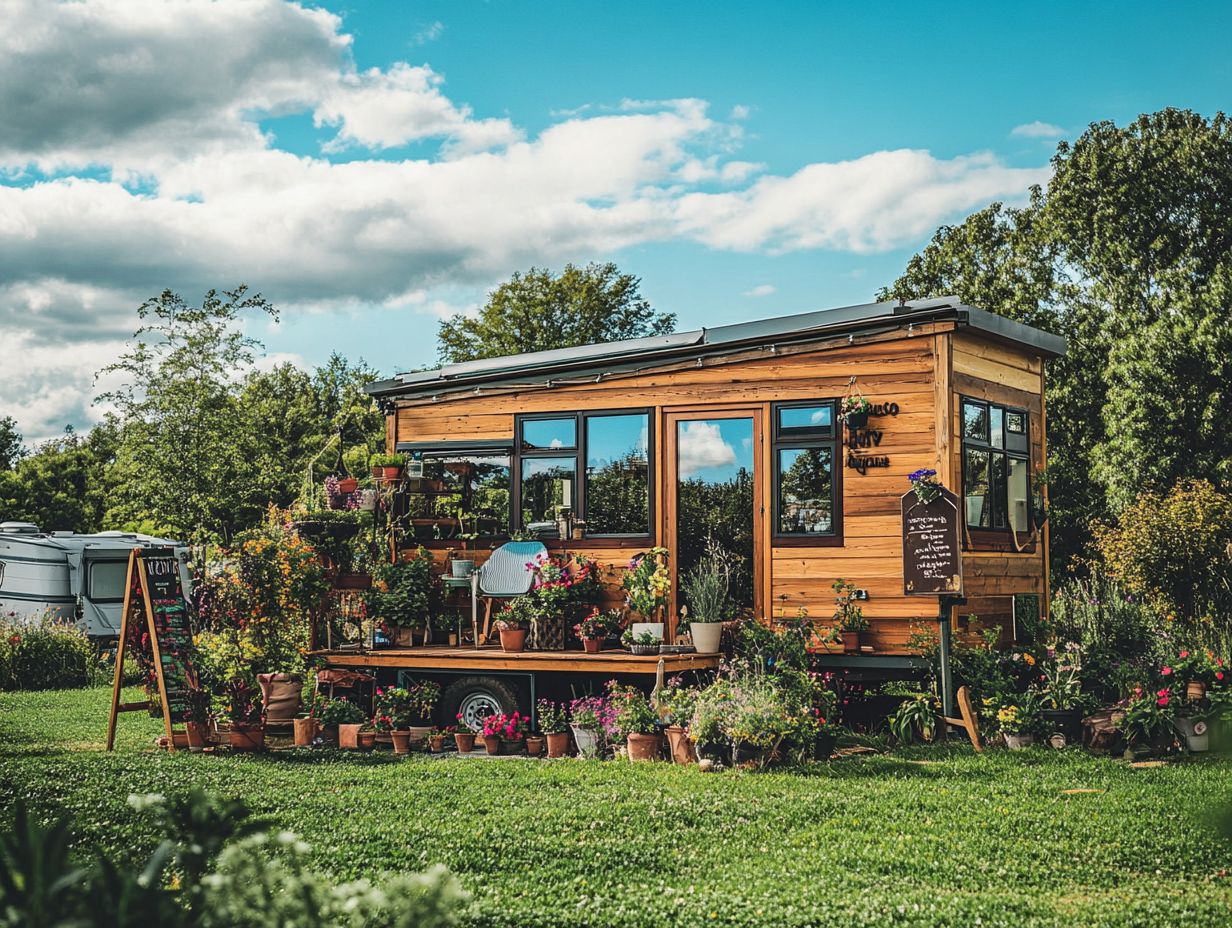
- Know the difference between zoning laws and building codes to understand how they impact living in a tiny house.
- Research and understand your rights and responsibilities as a tiny house dweller to avoid potential legal issues.
- Be prepared to navigate the permitting process and seek resources to ensure compliance with codes and regulations for your tiny house.
What are Tiny House Codes?
Tiny house codes include a set of regulations and guidelines that dictate the construction, placement, and use of tiny homes, a trend gaining momentum through the tiny house movement.
These codes can vary dramatically across regions and states, affecting everything from zoning laws to building codes. This variation influences where and how these charming structures can be legally established.
Familiarizing yourself with these codes is essential for anyone interested in embracing tiny house living. They ensure safety, legality, and adherence to local laws, paving the way for a seamless transition into this minimalist lifestyle.
Definition and Purpose
Tiny house codes are fundamentally about ensuring that your tiny home, whether on wheels or set on a foundation, aligns with local building laws and zoning regulations. These codes are designed with your safety, sustainability, and livability in mind.
By following guidelines like the International Building Code, your tiny home will be equipped to endure environmental challenges. For additional peace of mind, consider exploring tiny house legal resources you should know, which provides a secure haven for you and your loved ones.
These regulations also inspire innovative designs that enhance energy efficiency and reduce environmental impact, essential elements for a lifestyle that champions simplicity and eco-friendliness. For those navigating the legal aspects, seeking tiny house legal assistance can be invaluable. These codes also establish rules that cultivate a sense of community and belonging among tiny house inhabitants, all of whom value resourcefulness and sustainable living.
Understanding Zoning Laws
Zoning laws are crucial in deciding where you can place tiny houses. They often shape the properties and areas that welcome these compact dwellings in both urban and rural environments.
Each state in the United States has its unique zoning regulations, which can either support or obstruct the development of tiny house communities. These regulations influence essential factors such as minimum square footage and adherence to residential zoning requirements. For those considering these communities, understanding tiny house HOA rules is crucial, ultimately guiding your tiny house journey.
How Zoning Laws Affect Tiny House Living
Zoning laws significantly impact tiny house living, determining where you can legally place your home and whether it s classified as a residential unit or a small home built on the same lot as a larger house.
These regulations can vary greatly from one locale to another, tailored to meet specific community needs and concerns such as safety and aesthetics. In terms of tiny houses on wheels, many zoning departments classify them as recreational vehicles rather than permanent residences, which can severely limit your placement options. To navigate these challenges effectively, it’s essential to understand tiny house laws and what every owner should know.
On the other hand, tiny houses built on foundations may find a warm welcome in certain areas, provided they align with the community’s established housing criteria. To understand the requirements better, it’s crucial to refer to tiny house occupancy permits: a guide. This difference highlights how important local rules are in enforcing these laws, often navigating a complex landscape shaped by community input and state regulations.
Building Codes for Tiny Houses
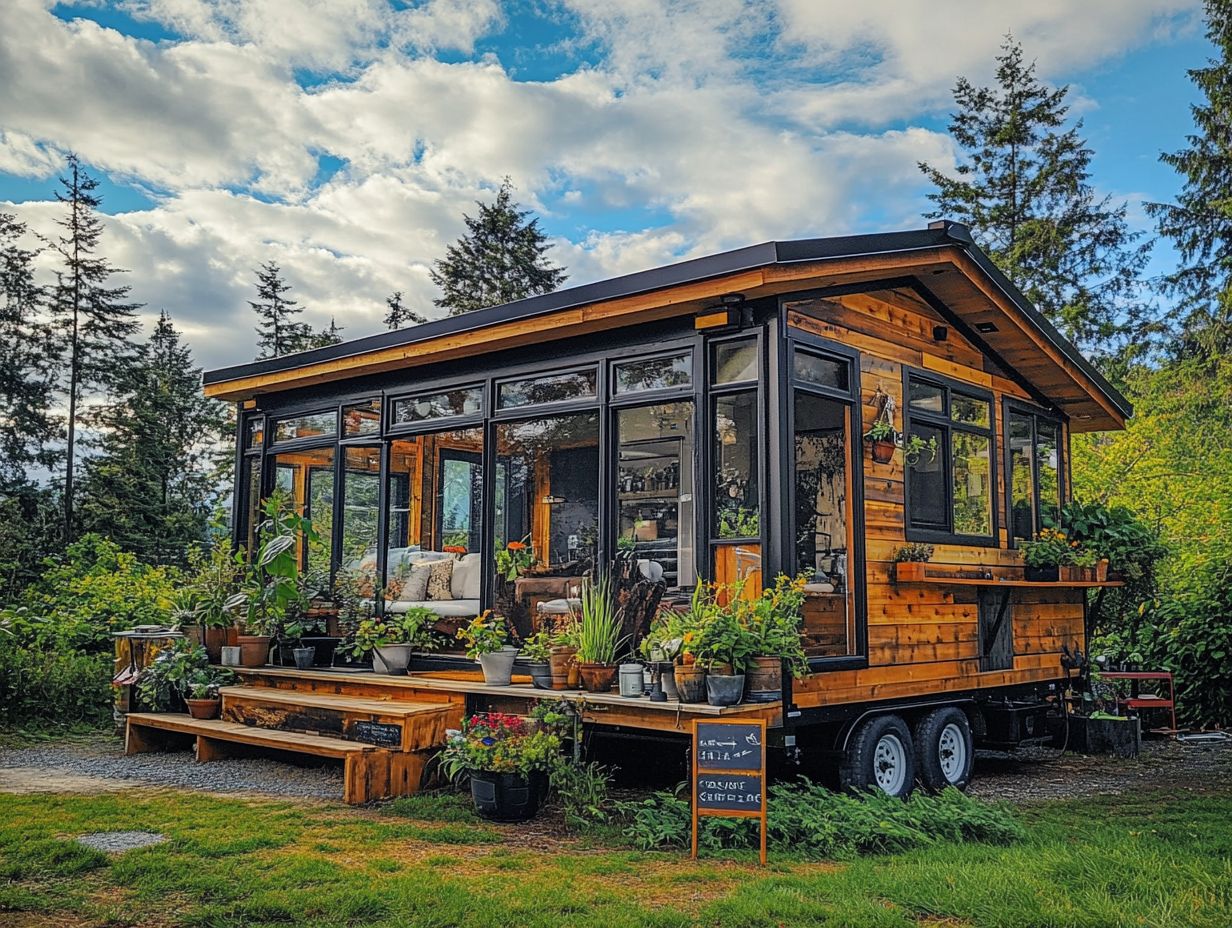
When you consider tiny houses, it’s crucial to recognize that building codes serve as critical guidelines. These codes ensure that your home is not only safe and durable but also compliant with local and national standards, including the International Building Code (IBC) and the International Residential Code (IRC).
Adhering to these regulations protects your investment and enhances the quality of your living environment.
Requirements and Restrictions
Requirements and restrictions for tiny houses generally center around minimum square footage, safety standards, and compliance with local building codes.
These regulations cover vital aspects such as plumbing and electrical systems, which must follow specific safety protocols.
Local building departments enforce compliance, ensuring that your tiny house meets legal standards and prioritizes occupant safety.
It’s important to note that these requirements can differ quite a bit from state to state. For example, Georgia may have more lenient zoning laws compared to Indiana, where you might face stricter adherence to standard residential codes.
This variation underscores the importance of understanding local regulations before you embark on your tiny house adventure.
Permits and Inspections
Securing the necessary permits and completing inspections is essential to ensure that your tiny house adheres to the legal and safety standards established by your local building departments.
Navigating the Permitting Process
Navigating the permitting process for tiny houses can be intricate. It often requires close collaboration with your local zoning and building departments.
To streamline this journey, gather all necessary documentation meticulously think site plans, architectural drawings, and proof of ownership.
Clear communication with local authorities is paramount. Consider scheduling informal meetings to discuss your project and foster a cooperative relationship that can work in your favor.
In states like California and New York, where regulations are strict, demonstrating compliance with environmental standards and community guidelines can significantly boost your project’s chances of approval.
Engaging with local advocacy groups or attending town hall meetings can provide valuable insights and support, paving the way for a smoother approval experience.
Legal Considerations for Tiny House Dwellers
In terms of legal considerations for tiny house dwellers, you’ll find a multitude of factors at play. Local laws, homeowners association regulations, and community guidelines shape the legality of residing in tiny homes.
Understanding these local rules is crucial for ensuring that your tiny living experience is both enjoyable and compliant with tiny house living guidelines.
Rights and Responsibilities
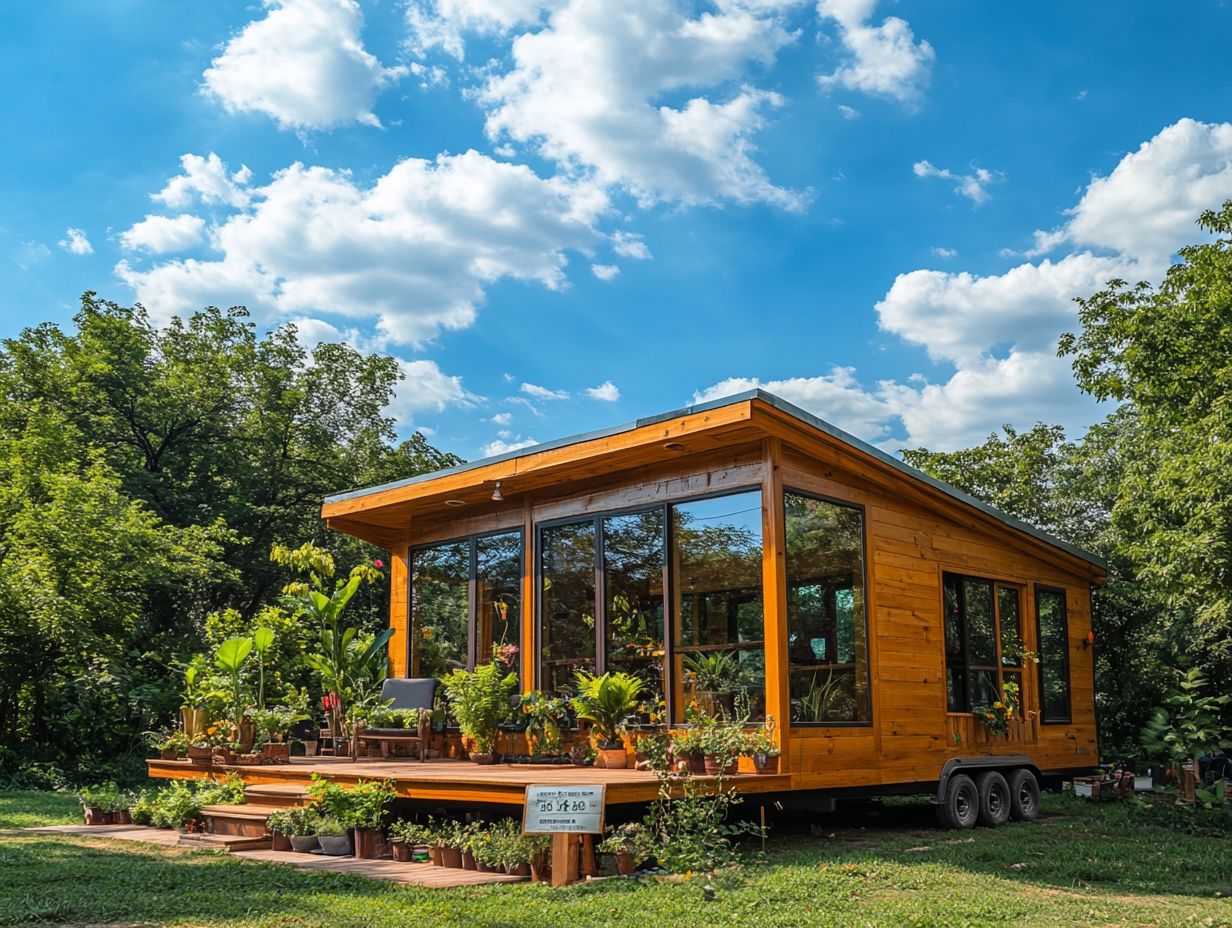
Understanding your rights and responsibilities in tiny house living is essential for fostering a harmonious atmosphere within tiny house communities and ensuring compliance with local regulations.
As a tiny house dweller, you’re not just seeking the freedom to downsize; you’re also looking for the legal protections that enable you to thrive in your chosen lifestyle. Understanding tiny house zoning laws is crucial, as you have property rights that allow you to own land or rent space, as well as the right to inhabit tiny homes free from unreasonable restrictions.
However, these rights bring the responsibility of maintaining your home to meet community standards and adhering to local zoning laws and building codes. For those considering tiny homes, it’s important to stay informed about tiny house regulations. Striking this balance cultivates a supportive environment where you can fully embrace your minimalist lifestyle while respecting the unique characteristics of your communities.
Resources for Tiny House Codes and Regulations
Resources related to tiny house codes and regulations are critical for you as a prospective tiny house owner. They offer invaluable guidance to help you navigate the local laws and building codes that vary from state to state.
Explore these resources further to ensure you are well-prepared for your tiny house journey!
Where to Find Information and Support
Finding reliable information and support for tiny house living can significantly enhance your transition into this unique lifestyle. Various organizations and communities offer valuable resources tailored just for you.
For example, platforms like TinyHouseMe present detailed guides on rules for tiny houses. Zoning laws determine how land can be used, ensuring you are informed right from the start.
Community resources such as the Tiny House Forum provide a space to share experiences, ask questions, and connect with fellow enthusiasts who share your passion.
Attending events like TinyFest provides valuable face-to-face networking opportunities. You can discover the latest trends and construction techniques while building camaraderie with other tiny house dwellers.
With these resources, you can confidently tackle challenges and fully embrace the joy of minimalist living within a supportive community. Start exploring these resources today and join the tiny house movement!
Frequently Asked Questions
-
What are tiny house codes and why do they matter?
Tiny house codes are regulations that dictate the minimum standards for building and living in a tiny house. They are important because they ensure the safety and well-being of individuals who choose to live in a tiny house.
-
Do I have to follow codes if I live in a tiny house?
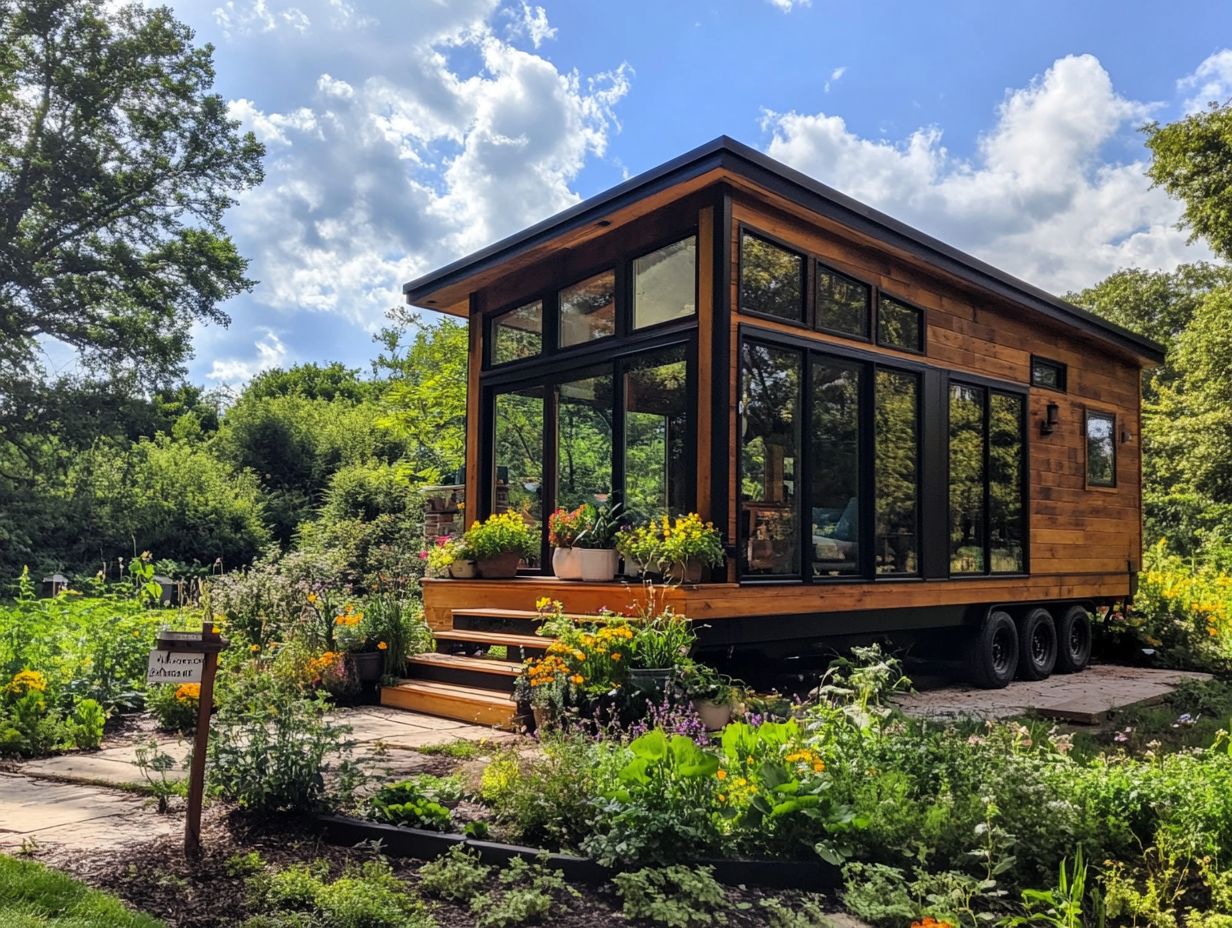
Yes, you are legally required to follow all applicable codes if you live in a tiny house. These may include building, zoning, and health codes, among others.
-
Are there different codes for different types of tiny houses?
Yes, there may be different codes for different types of tiny houses depending on their size, location, and construction materials. It is essential to research and understand the specific codes that apply to your particular tiny house.
-
Can I get in trouble for not following tiny house codes?
Yes, you can face fines and legal consequences for not following tiny house codes. It is important to comply with these codes to avoid any potential penalties.
-
Who is responsible for enforcing tiny house codes?
Local governments or building departments enforce tiny house codes, and the responsibility may vary depending on your location.
-
Do tiny house codes limit my rights as a homeowner?
Tiny house codes do not limit your rights as a homeowner. They ensure that your home meets certain safety and livability standards, protecting both yourself and your property.

